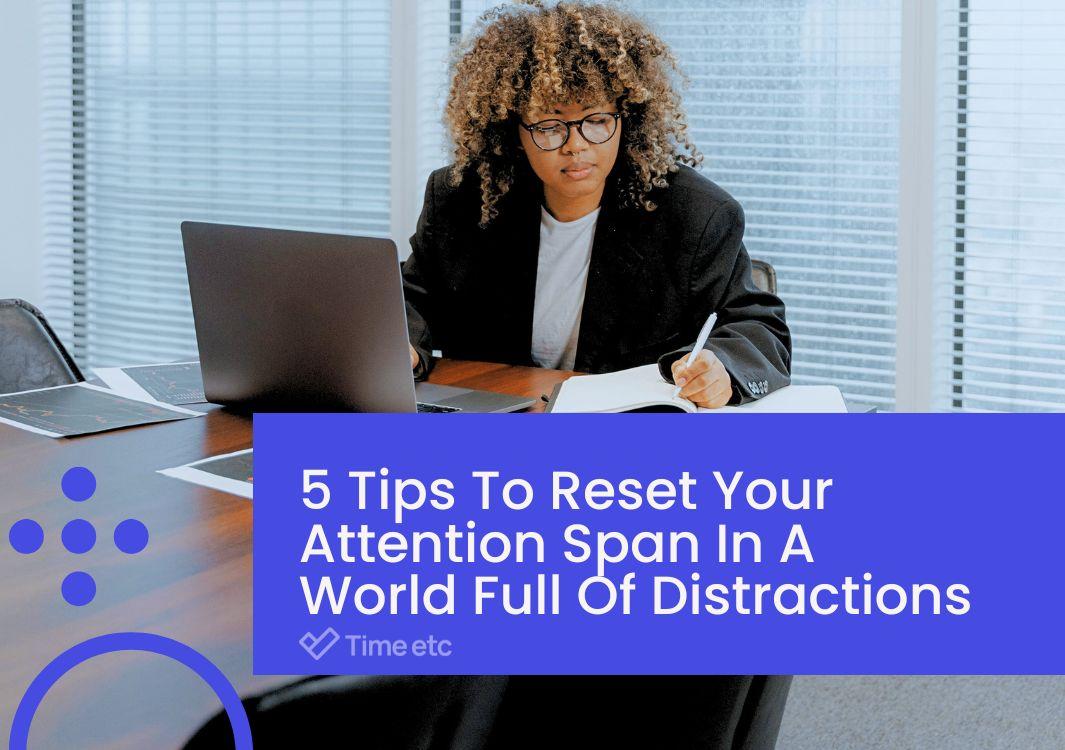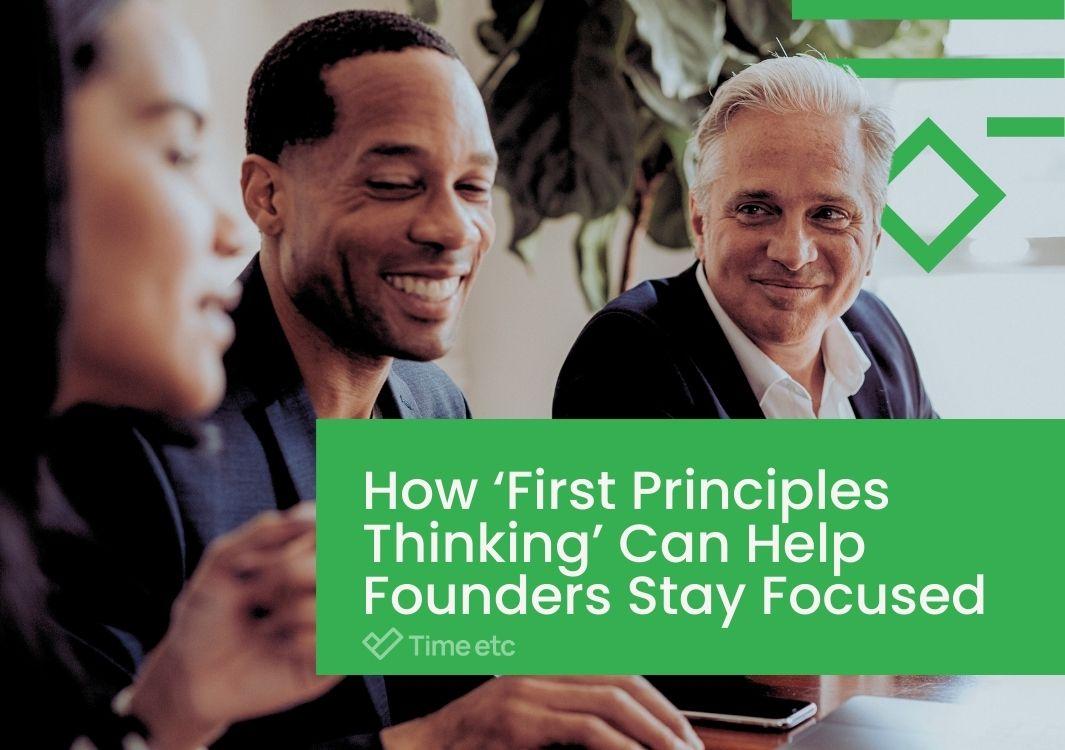When you start your business, your goal is to close as many deals and grow your customer base as much as possible. But saying yes to every opportunity may not always be the best decision for you or your business.
As an entrepreneur, you’ll face endless requests and demands on your time, energy, and resources, and trying to balance them all is a constant struggle. Learning to say no and set healthy boundaries allows you to focus on the most important tasks, and avoid burning out.
The power of saying no
There are many situations in life when it is better to say no. It can be a valuable tool to protect yourself and your interests. There are many reasons why you should not be afraid to say no...
Healthy boundaries
It’s no secret that the better you take care of yourself, the better you can run your business. Running a successful venture requires some boundaries and discipline. You need to set limits on how much you can and cannot do. Saying no allows you to put boundaries in place so that your business is not overextended or overwhelmed by too many tasks.
Setting healthy boundaries around your time and professional capacity is what makes it possible to do your best work, lead your business, and still feel rested and energized. When you take care of yourself, you're able to be more focused and clear-headed, which leads to better decision-making.
Greater control over your time
The most important asset for any entrepreneur is their time, and it's crucial to use it in ways that will yield the greatest return.
Saying no is an important skill for anyone in a position of responsibility. It allows you to prioritize the tasks that are most important for your company's growth and maintain better control over your time and schedule.
Avoid stress
According to occupational health experts, being an entrepreneur is one of the most stressful jobs you can have.
Stress can come from a variety of different sources, but one of the most common reasons is having too much on your plate.
A recent study into entrepreneurial well-being found that role overload—when the demands of your role exceed your time, energy, and capabilities to meet them—is one of the leading causes of stress in entrepreneurs. Further research into the effects of role overload has also linked it to anxiety and depression.
This is why saying yes to everything can be a recipe for disaster. Saying no gives you the chance to refresh and recharge when you're mentally drained. Having fewer demands on your time helps you lead a more balanced life where you can focus on what's important. And according to experts, when you're less stressed, you're more productive.
Manage your resources
When you start a business, resources are always limited. As an entrepreneur, it’s essential to know when and how to say no so that you can use your available resources efficiently.
Being realistic in terms of what tasks you can take on and what projects you can commit to is key.
“Really successful people say no to almost everything.” - Warren Buffett
So with all this in mind, here's what every entrepreneur should start saying no to in order to maximize their success:
Say no to…
Overworking
It’s easy to fall into the trap of thinking you have to work as much as physically possible in order to succeed, especially for business owners. Working insanely long hours may traditionally be seen as a badge of honor in the world of business, but no matter how many times we tell ourselves our hard work will pay off in the end, there is little evidence to suggest that this actually leads to greater success.
According to reports, 63% of business owners work more than 50 hours per week. 86% work on weekends, 53% work on major holidays, and 60% take just one vacation a year. Of those who do take vacations, 75% will continue to work.
With longer working hours and a lack of breaks, it’s hardly surprising to hear that 63% of entrepreneurs have experienced burnout at some point in their careers. When in a state of burnout, your mental and physical energy levels, passion, motivation, and focus all decrease. Without them, it’s almost impossible to do what’s needed to keep your business running smoothly—let alone be able to grow it.
Not only that, researchers at Stanford University found that working more than 50 hours a week causes productivity per hour to drop sharply, and working over 55 hours leads to such a significant decrease in productivity that working any further hours would essentially be pointless.
So, next time you're tempted to pull an all-nighter or work through the weekend, take a step back and ask yourself if it's really necessary.
Overbooking yourself
When first starting out, many entrepreneurs operate from a place of scarcity. They feel that they have to take every opportunity that comes their way, for fear that it may not come around again. However, this mindset can often lead to problems down the road.
First of all, saying yes to every opportunity is a slippery slope that usually leads to taking on more work than you can realistically handle. Constantly rushing against the clock to finish all your projects can lead to subpar results, as you may be more likely to cut corners in order to meet deadlines, as well as more likely to make mistakes.
Not only that, filling your schedule with as much work as possible also increases the risk that you won’t be able to complete it all in time, no matter how many shortcuts you try to cut to save time. This can have serious consequences, including negative reviews or feedback, losing out on future opportunities, and financial losses.
The pressure of so many tasks and projects on your plate can be immensely stressful, which can take its toll on your physical health. Increased susceptibility to colds and illnesses, migraines, and even heart attacks and strokes have all been linked to the negative impacts of stress. Running a business can be challenging enough when you’re in full health, let alone if you’re sick, so keeping stress levels as low as possible is crucial.
Finally, not every opportunity is going to be the best fit for your business. The “scarcity mentality” may try and convince you that any and all jobs are worth taking on, but a bad match will likely lead to disappointment, as well as wasted time and resources, for all involved.
So consider how many clients you can serve to the highest standard while still maintaining a healthy work-life balance, and aim to keep it that way. Turning down a deal doesn't automatically mean that you're missing out on a great opportunity. Rather, you understand the capacity and capabilities of your business and are willing to make strategic decisions to stay within those boundaries.
Saying no can help protect you from taking on too much at once and becoming overwhelmed or spreading yourself too thin. You owe it to both yourself and your business to stay on top form and be the best version of yourself every day.
Distractions
Believe it or not, we secretly enjoy distractions. They provide a welcome alternative to the difficult tasks or complex problems we should be focusing on, instead.
Distractions come in many different forms, whether it’s an ad-hoc request from a colleague, a new email in your inbox, or a notification on your business’s social media page. We may feel like we’re accomplishing something, but every time this happens, we’re diverting time, energy, and focus away from where it’s needed most.
Experts have found that on average, it takes around 23 minutes to get back on track after getting distracted by something else. Regularly switching tasks disrupts your flow, preventing you from maintaining that focused state of mind where you can do your best work.
Low-impact tasks
For many entrepreneurs, most of their time (around 68% of their working hours, on average) is spent crossing off the same items from their list, only to have to do them again the next day, week, or month. These sorts of tasks can make us feel productive but, other than the sense of satisfaction we get from ticking them off our list, they don’t accomplish much in terms of growing our businesses.
So for any regular recurring tasks on your to-do list that don’t add value to your business or take you closer to your goals, it’s time to automate, delegate, or eliminate them completely. The combination of more time to focus on things that really matter, less stress, and more energy to invest in creating the highest-quality work is what makes it possible to achieve more in less time and make real progress toward your goals.
Use our free to-do list optimizer tool to find out just how much of your workload actually needs to be done by you.
How to get better at saying no
Saying no is not always easy, but it is a vital skill to keep your new boundaries in place. By learning to say no—and be comfortable doing so—you can focus on growing your company without being overwhelmed by unnecessary tasks.
Here are some tips on how you can do just that:
Know the value of your time
At any given moment, there’s always bound to be someone—or something—that wants your attention. And whether it’s out of a genuine desire to be helpful, not wanting to let others down, or what you're being asked to do is more appealing than what you're supposed to be doing, it might seem like no big deal to stop and lend a hand. But over time, those little moments can add up and take a significant chunk out of your day.
As the head of your company, there is nobody who knows it inside-out more than you, which means there is nobody more qualified than you to take it to the next level. But even if you had all the time in the world, you’d still struggle to reach that level if you don't spend that time wisely.
So when presented with new spontaneous work or ad hoc requests, take a moment to ask yourself whether this is really the best use of your time.
Change your mindset
When considering whether or not to do something, it's important to keep a positive mindset. If you know you should decline, see this as an opportunity in itself, rather than feel guilty about what you're potentially missing out on.
Remind yourself that "no" is really a "yes" to more meaningful work, more time to focus on growth, and better opportunities down the line. Focusing on the positives of the no than on what you might have gained if you had said yes will help you to move forward more confidently.
Be direct and clear
When you say no, aim to be as clear as possible to avoid confusion or misunderstanding. Try not to sugarcoat things or make excuses, and if you think you need to offer an explanation, this isn’t necessary. Adding a justification to your "no" gives people the chance to challenge your reasoning, putting you in a difficult position to maintain your original refusal.
Instead, offer an alternative solution or option, if possible. For example, “I can’t help you with this right now, but this person may be able to help instead.”
And no matter what you're saying no to, it's important to always be polite, respectful, and professional to leave a positive impression for future interactions.
Be consistent
It is important to be firm when setting boundaries and saying no. Know your limits and stick to them. This way, people will know that when you say no, it really means no.
Having a set of your own rules in place will help guide you in knowing when it is appropriate to say no and when not to. This way, your answer won't just be based on how the day feels but will remain consistent even when the circumstances are similar.
Practice it everyday
It might sound simple to just say no, but it can be hard to do in reality, especially if you're used to being a people-pleaser.
Remember the old saying, “Practice makes perfect.” Do it often, as long as the situation calls for it. The more you get used to it, the less guilty you'll feel whenever you have to put your personal or business needs first.
What's the bottom line?
As an entrepreneur, it is easy to get caught up in all of the different projects, ideas, and tasks you have to tackle on a daily basis. However, no matter how busy you are, it’s important to learn how to say no and set boundaries. The ability to control your own time and commitments will allow you to make better decisions during the day, not feel burned out, and help make you more productive.
Set rules and boundaries, know when to say no and when to say yes, and practice saying no often. Doing so will help you focus on the things that matter most for your business and be more successful in the long run.
Remember, there is power in saying no—use it wisely!







